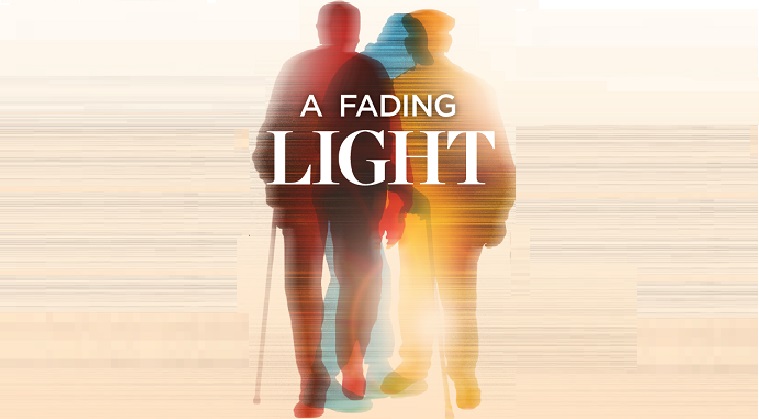A Fading Light: Chapter 6

There would be no Zumba classes for me. I definitely was not going to join a senior citizens’ center

C
onnecting and communicating with others can be extremely helpful to caregivers and those who have lost loved ones.
A year or so after my husband z”l died, I was determined to change what had become a very solitary, lonely lifestyle, and decided to sign up for a Zumba class. On my way to the senior citizens’ center where it was being held, I passed a surgical supply store and was faced with a depressing sight: an assortment of walkers, wheelchairs, commodes, and other devices for the elderly and infirm.
I stood transfixed in front of the store window, thinking how sad it would be to grow old without my husband at my side and how scary it felt to be enrolling in a senior citizens’ center. I had no doubts. This was a slippery slope. Projecting a few years down the road, I saw myself pushing a walker — and worse.
Finally, I shook myself out of my reverie and started toward home. There would be no Zumba classes for me. I definitely was not going to join a senior citizens’ center.
Amazingly, the very next thing I saw was a huge neon sign in the window of a T-Mobile store that read: “Connect.” My despair vanished almost as quickly as it had come on, and I laughed out loud at the unequivocal command laid out before me in garish pink letters.
It brought to mind an earlier time when connecting had helped me cope. On that occasion, I overcame my reluctance and joined a spousal support group, which was one of the best decisions I ever made. With that in mind, I went on to sign up for the Zumba class. It turned out to be helpful, healing, and just plain fun.
As for the support group, I can’t begin to explain what a lifeline it was. At a time when I felt that nobody — not even the most loving family and friends — could possibly understand what I was going through, I found a group of women who “got it.”
It was a huge relief to realize that with fellow travelers at my side who offered empathy, understanding, and practical advice, my agonizing journey would no longer be solitary. I felt stronger and more hopeful than I had in a very long time. I eagerly undertook the three-hour round trip every other week to meet with my group. The effort was worth it every single time.
Connection with others, community, is a core value of Judaism. Coming together, relying on one another, reaching out to help someone in need — these are things we do every day. Joining a support group should not be a foreign concept to us.
(Excerpted from Family First, Issue 644)
Oops! We could not locate your form.


